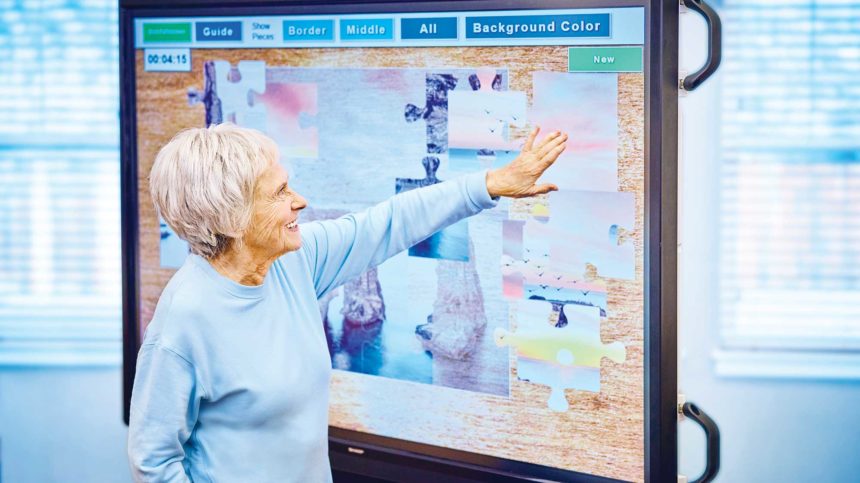
Therapy using an interactive touchscreen system successfully engaged older adult community residents with dementia and improved functional outcomes, according to the results of a new study led by a Pennsylvania State University researcher.
In the study, investigators followed about 100 individuals with dementia in two residential care communities run by Presbyterian SeniorCare Network in Pennsylvania. All participants received occupational and physical therapy for about 10 to 14 days, typically after a hospital stay. In one facility, residents had therapy as usual. In the other, therapists used the touchscreen-based It’s Never 2 Late system to incorporate music, visuals and games personalized to the residents’ interests and tastes into their therapy sessions.
Cognitive limitations can interfere with engagement in rehabilitation, according to researchers, so this study sought to find out whether interactive technology could enable residents to participate more fully. Results showed that participants who used the technology had significantly higher goal attainment than their peers who did not. These residents also had higher levels of engagement at the study’s start, and greater increases in engagement as therapy continued, noted clinical gerontologist Stephen Zarit, Ph.D., the study’s lead author.
The results suggest that technology-inspired engagement can drive better outcomes, Zarit said. A resident who loved airplanes moved from frustration to participation when he played a flight simulation game, Zarit noted.
The technology “adds to therapists’ clinical toolbox, helping them gain the attention of persons with dementia and engage them in activities more effectively,” he concluded.
Based on the results, Presbyterian SeniorCare Network plans to roll out the technology systemwide. Findings were published in the journal Aging and Mental Health.




